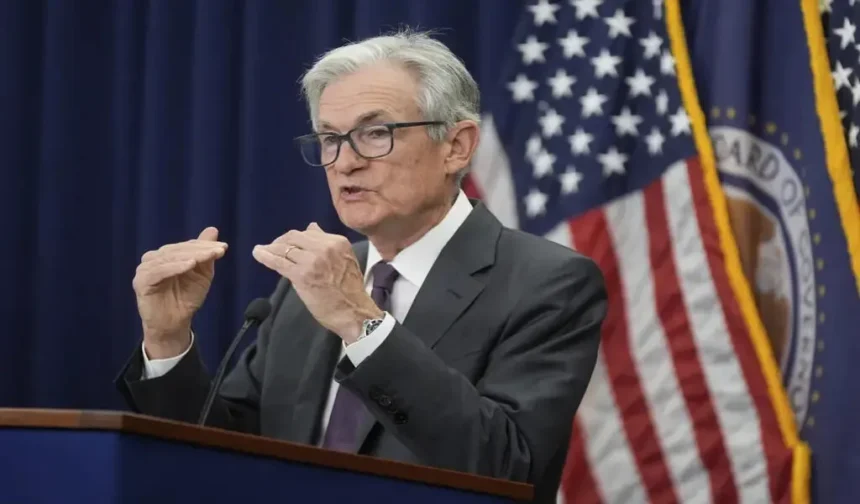(CTN News) – July U.S. inflation was steady due to increased import prices and declining gas and grocery prices. Compared to last year, costs were just slightly higher.
The Labor Department announced 2.7% annual increases in consumer prices for July on Tuesday. This matches last month and rises from April’s 2.3% post-pandemic low. Core prices grew 3.1%, up from 2.9% without volatile food and energy in June. Both figures exceed the Fed’s 2% target.
Recent data shows that reduced rents and oil outweigh President Donald Trump’s giant tariffs. Many companies may still be responsible for most requirements. The 10% global tax Trump announced in April and increased tariffs on Canada and China may have affected Tuesday’s data.
According to Boston College economist Brian Bethune, overall U.S. tariffs, determined by dividing corporate levies by imports, have surpassed 10%, the highest level in decades. He expects the rise to last months.
“The consumer will bear the cost increases in some way,” said Bethune. He also remarked that some companies use “shrinkflation,” reducing product size while maintaining price.
Tariffs reduce profit margins; therefore, corporations hire less labor.
The potential threat to the Federal Reserve is real. Spring hiring plummeted after President Trump imposed tariffs in April. Several Fed policymakers are concerned about the job market as employment growth slows, which contributed to the September interest rate cut.
Federal Reserve rate reductions often lower mortgage, automobile, and business loan rates. Economists disagree on how the Fed will interpret data in the coming months. Some predicted falling employment would compel the Fed to drop rates at its September meeting, outweighing inflation concerns.
Some think the Fed will delay because core inflation is above 2% and growing. President Trump is upset with Jerome Powell’s warning as Fed Chair that rising costs may force inaction. Trump questions central bank independence and favors lower borrowing prices.
Trump slammed Powell again on Tuesday for failing to decrease interest rates and indicated he may launch a lawsuit against the Fed over high building renovation costs. It’s unclear which lawsuit Trump was referring to.
Prices rose 0.2% in July inflation, down from 0.3% in June
Core prices rose 0.3% from 0.2% in June. According to the EIA, gas prices declined 9.5% last year and 2.2% from June to July. Grocery prices dipped 0.1% last month but rose 2.2% a year earlier.
Tariffs raised shoe costs 1.4% from June to July but only 0.9% year-over-year. July furniture prices grew 0.9% and are 3.2% higher than last year. The main reason coffee prices climbed 15% last year was harvesting issues abroad. Due to hefty Brazilian coffee import tariffs, prices may rise in coming months.
Imported coffee dominates US consumption. The Bureau of Labor Statistics, which releases Labor Department inflation figures, needs Tuesday’s data. After the August 1 jobs report showed substantially lower May and June hiring figures than previously announced, President Trump sacked BLS head Erika McEntarfer.
On Monday, Trump revealed on social media that he had chosen Heritage Foundation economist E.J. Antoni, a jobs report skeptic. Antoni replaces McEntarfer. BLS said the government’s job freeze has lowered inflation report data, aggravating its turmoil.
UBS analyst Alan Detmeister says the BLS is obtaining 18% fewer price quotations for the inflation report than at the start of the year. He anticipates the report to yield more fluctuating but average results.
Smaller enterprises have avoided price increases via unconventional financing
Tariffs have raised costs by 15% to 20% for Princess Awesome, a clothing producer that manufactures coordinated outfits for toddlers and adults. Corporations sued to evade duties. Rebecca Melsky, CEO and co-founder, argues US cotton blend fabric production is too expensive.
Its website has a “tip jar” to promote sales. “We have not yet implemented a comprehensive price increase in response to the tariffs,” he stated. Trump claims multinational manufacturers will lower costs to offset taxes. Import pre-tariff prices have not decreased since the levies were implemented.
According to Goldman Sachs analysts, foreign manufacturers paid 14% of charges through June, consumers 22%, and U.S. firms 64%. Analysts estimate consumers to pay two-thirds, exporters one-quarter, and U.S. firms less than one-tenth in autumn.
Ralph Lauren, Under Armour, and Warby Parker are hiking prices. For Tuesday’s inflation data, most of those hikes were canceled.
Last month, Crest toothpaste, Tide detergent, and Charmin toilet paper maker Procter & Gamble announced a 25% price increase by mid-single-digit percentages in August. Walmart hiked prices.
On Wednesday, Chinese cosmetics business E.l.f. Beauty announced a $1 price increase on August 1. This marks the company’s third price increase in 21 years.
SOURCE: AP
SEE ALSO:
A $7.7 Billion Deal Will Give Paramount the UFC’s TV Rights Starting in 2026
President Trump Ordered a Homeless Man He Passed on His Way to the Golf Course to Leave
Nan Governor Helps 80-Year-Old Granny After Floods Destroyed Her Home















